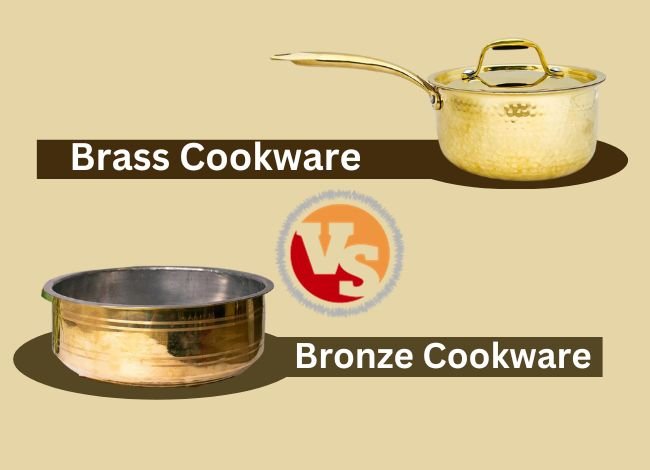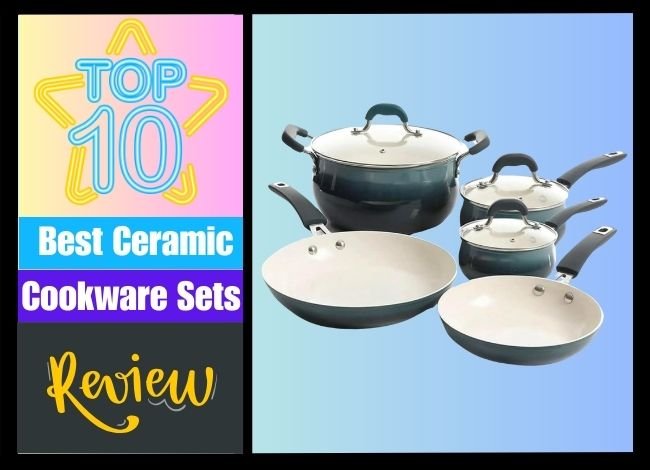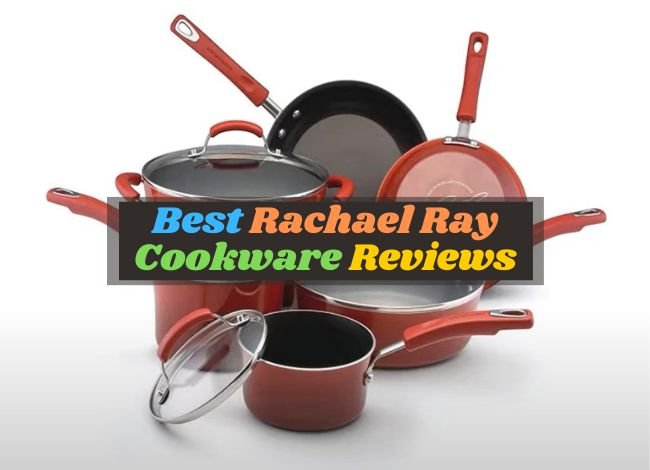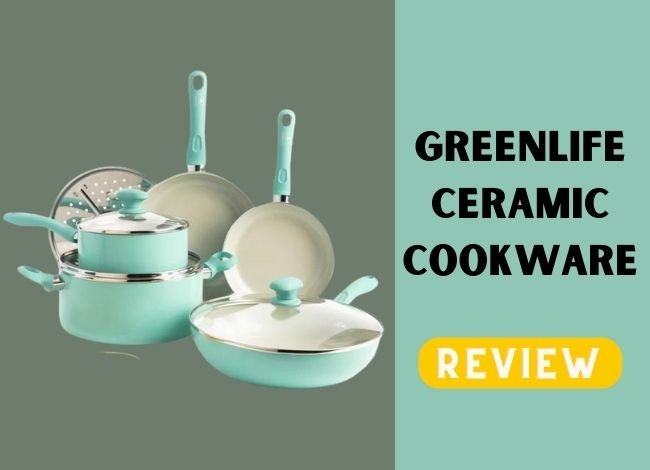Last Updated on January 21, 2024
Brass vs. Bronze Cookware: Which Metal Reigns Supreme in the Kitchen?
In the culinary world, the debate between brass and bronze cookware is a heated one. Brass, known for its superior heat conductivity, ensures even cooking. It’s a favorite among chefs for its quick heating and cooling abilities, making it ideal for precision cooking. On the other hand, bronze cookware is celebrated for its durability and corrosion resistance. Its heavier weight and sturdiness make it a long-lasting addition to kitchens. This post delves into the unique properties of each metal, helping you decide which reigns supreme for your culinary creations.
The Ultimate Showdown: Comparing Brass and Bronze Cookware Benefits
When it comes to choosing cookware, the decision between brass and bronze is crucial. Brass, with its high thermal conductivity, is perfect for tasks requiring precise temperature control. Bronze, meanwhile, boasts a robust composition, resisting wear and tear over time. This post compares these benefits in detail, offering insights into how each material can enhance your cooking experience. Whether you’re a professional chef or a home cook, understanding these differences is key to making an informed choice.
Choosing Between Brass and Bronze Cookware: A Comprehensive Guide
Selecting the right cookware is more than a matter of preference; it’s about understanding the materials. Brass, a blend of copper and zinc, is highly conductive and responsive to temperature changes, making it ideal for quick-cooking dishes. Bronze, typically an alloy of copper and tin, offers a heavier, more durable option. This comprehensive guide explores the nuances of both materials, helping you choose the best fit for your kitchen needs and cooking style.
Brass vs. Bronze in the Kitchen: What Every Home Chef Should Know
Choosing between brass and bronze cookware is more than just a matter of aesthetics; it’s about functionality and suitability to your cooking style. Brass cookware, an alloy primarily of copper and zinc, is celebrated for its excellent heat conductivity. This feature ensures quick heating and cooling, offering unparalleled control for tasks like searing and sautéing. Conversely, bronze, an alloy of copper and tin, is lauded for its robustness and excellent heat retention. It’s the preferred choice for even, gentle cooking, making it perfect for dishes that require sustained, uniform heat, like stews and braises. However, home chefs should be mindful of the maintenance these materials demand. Brass can tarnish and may require frequent polishing, and both metals are prone to scratching. Additionally, consider the health implications; brass cookware often needs a lining to prevent copper from leaching into food. Understanding these aspects will guide home chefs in selecting the right cookware, whether it’s brass’s responsive nature or bronze’s enduring resilience.
Pros and Cons: Understanding the Differences Between Brass and Bronze Cookware
Every cookware material has pros and cons; understanding these is crucial for any cook. Brass cookware heats up quickly and offers unparalleled temperature control, but it requires regular polishing and isn’t suitable for acidic foods. Bronze cookware, while heavier and slower to heat, is incredibly durable and less reactive with food. This post examines these differences in detail, offering a balanced view to help you make the best choice for your kitchen.
Expert Insights: How to Choose Between Brass and Bronze Cookware
When it comes to selecting the perfect cookware, the debate between brass and bronze is a classic one. Brass cookware, known for its bright, gold-like appearance, is revered for its superior heat conductivity. This feature is essential for precise temperature control, making it a favorite among chefs who require consistent cooking temperatures. On the other hand, bronze cookware boasts a rich history dating back to ancient times. It’s valued for its durability and even heat distribution, making it ideal for slow cooking and roasting. However, one must consider factors such as reactivity with acidic foods, maintenance level, and weight. Brass tends to react with certain foods, which can influence flavor, while bronze requires regular polishing to maintain its luster. Additionally, the weight of these metals can impact handling ease during cooking. Understanding these nuances is crucial for choosing cookware that aligns with your cooking style and needs. Whether you’re a professional chef or a home cook, recognizing the unique properties of brass and bronze cookware will empower you to make an informed decision.
Brass or Bronze Cookware? Decoding the Best Metal for Your Culinary Needs
Deciding between brass and bronze cookware comes down to your specific culinary needs and preferences. Thanks to its heat conductivity, brass is excellent for high-heat, fast-cooking techniques. Bronze, on the other hand, is perfect for slow, even cooking, due to its ability to retain heat. This post decodes the advantages of each metal, helping you determine which one aligns best with your cooking style and kitchen demands.
From Heat Conductivity to Durability: Brass vs. Bronze Cookware Explained
The choice between brass and bronze cookware hinges on two critical factors: heat conductivity and durability. Brass excels in conducting heat, allowing for quick and even cooking, while bronze offers unmatched durability, standing up to high heat and frequent use. This post explains these key differences in depth, providing you with the knowledge to choose the right cookware based on your cooking habits and longevity expectations.
- Is brass cookware safe for cooking?
- Yes, brass cookware is generally safe for cooking. However, it’s important to ensure it’s properly lined, as high levels of zinc can leach into food, especially when cooking acidic dishes.
- Can bronze cookware be used on modern stovetops?
- Yes, bronze cookware can be used on most stovetops, including gas, electric, and glass-ceramic. However, it’s not typically compatible with induction cooktops.
- How does food taste differ when cooked in brass vs. bronze cookware?
- Some chefs believe brass cookware offers a unique flavor enhancement, particularly for certain traditional dishes. Bronze cookware doesn’t significantly alter the taste but is known for even cooking.
- How do I clean and maintain brass cookware?
- Brass cookware should be washed with a gentle detergent and a soft sponge. Avoid abrasive materials. To maintain its shine, occasionally polish it with a mixture of vinegar, flour, and salt.
- What are the benefits of cooking with bronze cookware?
- Bronze cookware has excellent heat retention and distribution properties, making it ideal for slow-cooking and evenly-cooked dishes. It’s also highly durable.
- Are there any health concerns associated with using brass cookware?
- If brass cookware is unlined or poorly maintained, there’s a risk of zinc and copper leaching into food, which can be harmful in excessive amounts. It’s important to use high-quality, well-lined brass cookware.
- Can I use metal utensils with bronze and brass cookware?
- Using wooden or silicone utensils is recommended to avoid scratching the cookware’s surface.
- How does the cost of brass cookware compare to bronze?
- Generally, brass cookware is less expensive than bronze. The price difference is due to the cost of materials and the manufacturing process.
- Can brass or bronze cookware be used in an oven?
- Bronze cookware is typically oven-safe, but checking the manufacturer’s specifications is important. Brass cookware is less commonly used in ovens due to its lower melting point.
- How does the weight of brass and bronze cookware compare?
- Bronze cookware tends to be heavier than brass, which can be an important consideration for handling and storage.
- Are brass and bronze cookware dishwasher safe?
- Generally, it is not recommended to clean brass or bronze cookware in a dishwasher. The harsh chemicals and high temperatures can damage the surface and finish.
- How long do brass and bronze cookware last?
- With proper care and maintenance, both brass and bronze cookware can last for decades, often becoming heirloom pieces in families.




